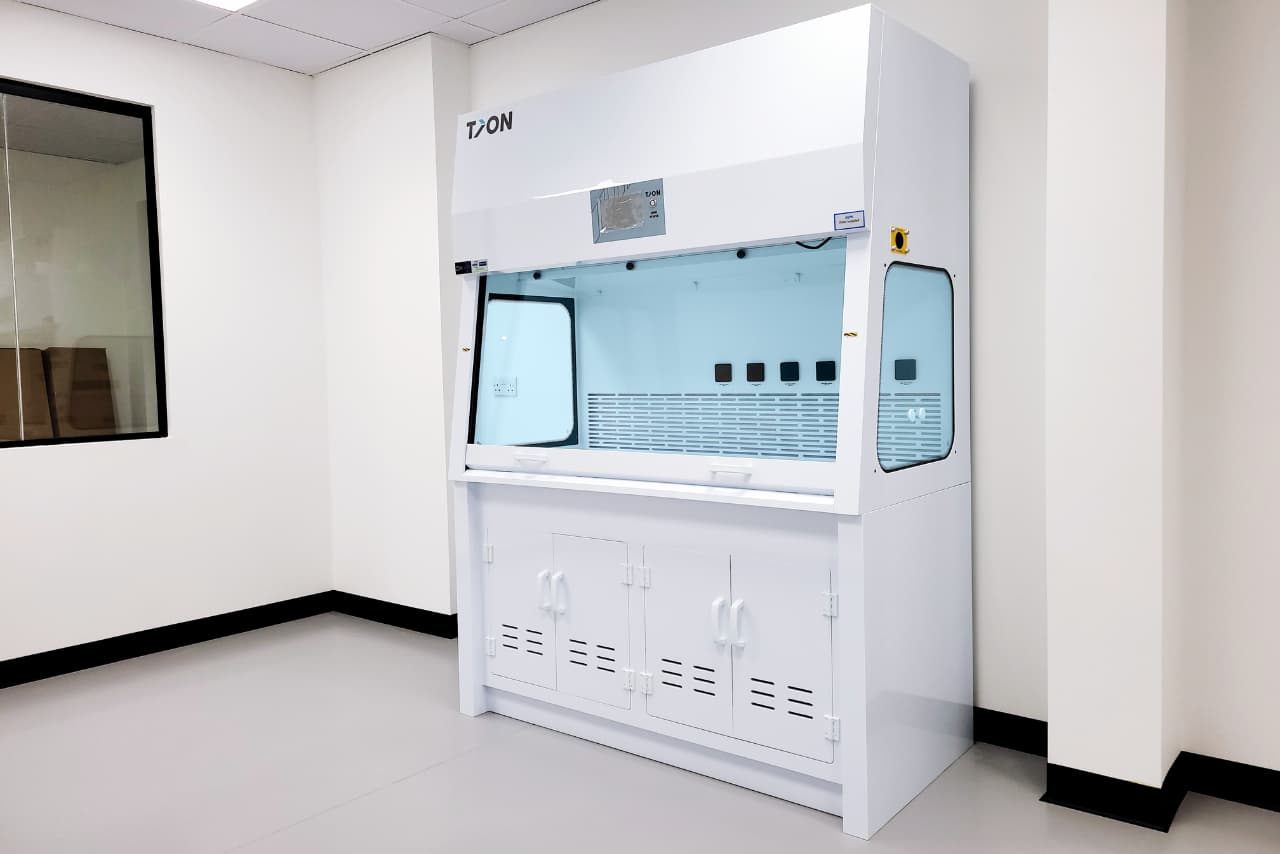
Choosing the right fume hood for your laboratory can be a challenge, and ductless fume hoods could be the solution you have been looking for. Whether you are working in an educational laboratory or an industrial location, having the right fume hood at your disposal is crucial. This piece of equipment is so important for the safety of your lab and your team, so choosing the right one is vital. In this guide, we are looking into what a ductless fume hood is and whether it is the right option for your laboratory.
Also known as a recirculating fume enclosure or a filtered fume hood, a ductless unit is self-contained and works to remove toxic molecules, particles and vapour from the air. Having a chemical fume cabinet is likely to be the most essential piece of safety equipment your workplace can have. They clean the contaminated air to deliver clean air back into the environment. Compared with other types of chemical fume hoods, the ductless solutions can be more cost-efficient, easier to install and don't require ductwork around the building. Despite all these benefits, ductless fume hoods are not suitable for every situation. There are a few factors that you need to take into account before deciding if a this type of fume cupboard is suitable for your laboratory.
Probably the most important consideration is the type of chemicals that your laboratory uses. The majority of ductless fume cupboards are only suitable for process-specific or light-duty fumes. Before you decide if this unit is right for you, compile a list of all the chemicals and the quantities of each. From this, you should be able to determine if a ductless hood would work in your lab. If your laboratory use is likely to change over time, or you do not know what type of chemicals will be used in future, then this fume extraction system might not be the best choice for you. The safety and health of your employees or operators should be your top priority, so the type of chemicals you are using will be the main deciding factor on whether a ductless fume hood is right for you.
Another critical factor to consider is the cost of a recirculating fume hood. We have already mentioned that this system can often be more cost-effective than a ducted alternative. A ducted system needs to have an expensive infrastructure around it, such as ducting, mechanical systems, exhaust fans, roof elements and more. All of these things are an additional cost to consider. A filtered hood eliminates all of these extra costs, but that does not mean they are free to run. Ductless hoods will need regular filter replacements, which is an expenditure that needs to be taken into account.
Modern labs are embracing modular setups and flexible furniture. A recirculating hood fits perfectly with this because it provides you with the ability to move it around to anywhere in the lab. With a plug and play setup, you can use a ductless fume hood in various locations as and when you need it. This can give your operators the opportunity to work to their full capacity without being constrained by the design of your lab.
A ducted unit is permanently fixed in place and offers no flexibility at all. These tend to be installed in older buildings or ones with limited access. However, with a ductless fume hood, you can even take the unit with you if you ever move to a new laboratory or location.
Filtered hoods require ongoing operation and maintenance. This means that users need to know how to operate the fume cupboard safely and understand how to maintain the filtration system. Unlike with a ducted cabinet, ductless cupboards require regular DOP testing and filter replacements. You will need to ensure that someone in your laboratory can take full ownership of the maintenance and handling of the filter replacements, including ordering new ones and changing them as required.
There are advantages and disadvantages of both ductless and ducted fume cupboards, and it is essential to understand both before deciding which is right for your laboratory. The usage of different chemicals, upfront and ongoing costs, and availability of staff are all important factors to consider when choosing the right unit for you.
For more information and to discuss your requirements in detail, contact our specialists today. Alternatively, you can purchase our ductless fume cupboards by clicking the link.
Read our Privacy Policy for more information on how we collect and process data.



No thank you
Read our Privacy Policy for more information on how we collect and process data.